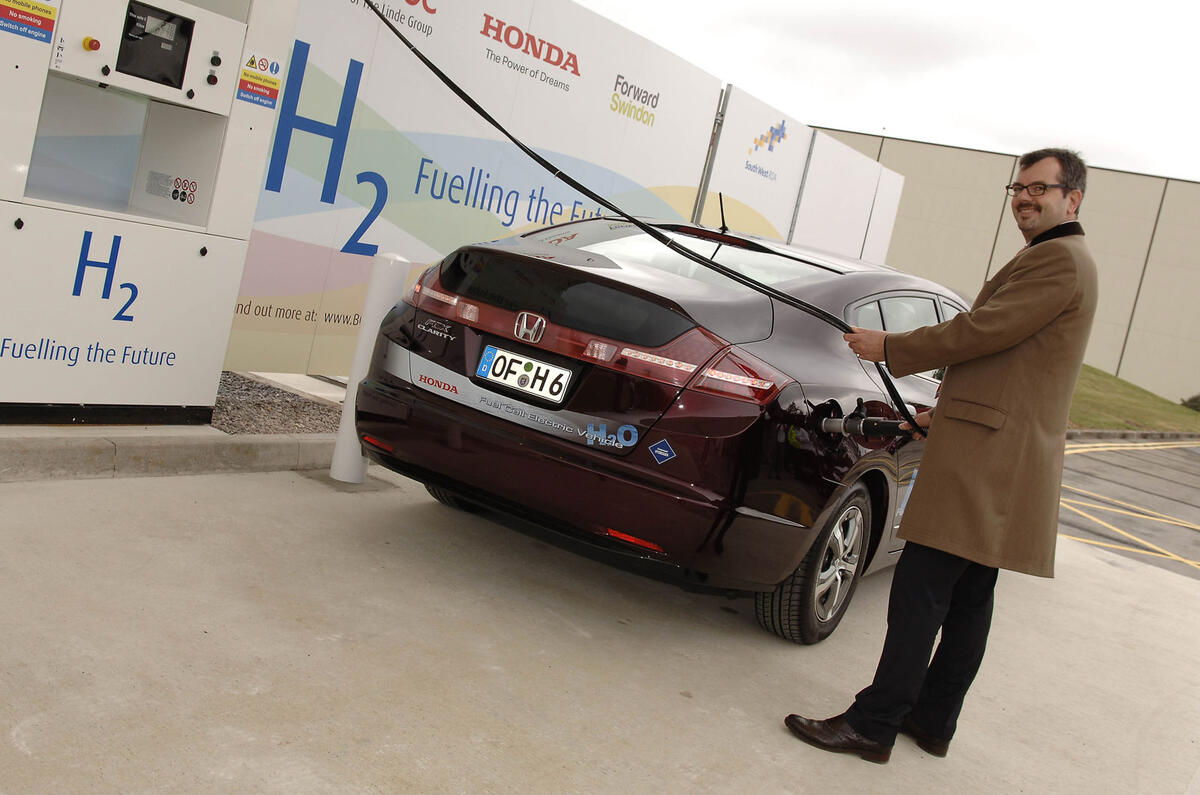A solar-powered hydrogen production and filling station facility capable of producing 20 tonnes of hydrogen a year has been opened at Honda’s Swindon factory.
The hydrogen it produces can be dispensed directly into fuel cell vehicles such as Honda’s own FCX Clarity.
Fuel cell cars are still under development and so far have only been manufactured in small volumes, but Honda fuel cell expert Thomas Brachman says that if made in numbers of 100,000 a year or more, the cost of a Honda hydrogen fuel cell car could already compete on price with a conventional combustion engine-powered car of today.
The hydrogen station is the first to produce commercial quantities of renewable hydrogen at the point of use. It has been developed by a consortium of companies including the British Oxygen Corporation, with funding from the government’s Innovate UK.
The plant will also supply a small fleet of bi-fuel Ford Transit vans belonging to Swindon Borough Council and two fuel cell-powered fork lift trucks working in the production facility.
Hydrogen is produced at the new plant in a sustainable way though pressurised alkaline electrolysis of water using electricity produced by a solar farm nearby.
Electrolysis is a process which breaks down water into hydrogen and oxygen with no carbon emissions, as long as the electricity used is from renewable sources. A fuel cell converts hydrogen and oxygen into ‘clean’ electricity with only water and heat as by-products.
Hydrogen is produced by the Honda production plant at 900bar and can be supplied to vehicles with either 350bar or 750bar storage tanks. The firm first established a hydrogen filling facility at Swindon in 2011.
Until now, the hydrogen it dispensed was shipped to the site, but the addition of the sustainable production facility has significant implications for the potential of hydrogen as a transport fuel.
One of the challenges manufacturers face in making fuel cell cars a production reality is the distribution of hydrogen to the point of sale. There are arguments in favour of centralised hydrogen production on the grounds of cost, but stand-alone systems don’t rely on a complex hydrogen delivery network and the associated carbon footprint that goes with it.
According to the UK Petroleum Industry Association, the cost of building a conventional high volume filling station capable of dispensing five million litres per year is in the region of £2 million - compared to the cost of the Honda filling station and production plant of just over £1 million.





Join the debate
Add your comment
It's a shame there's no information about the hydrogen fuel cost. RAC quotes £10/15 per kg but that sounds terribly vague. It would be good to see real world fuel prices, particularly up to date ones.
It would also be good to get a projection from a retailer like BOC as to what they see a mature market price to be.
Only when you have that info can you make a realistic judgement about the feasibilty of FCEVs
Tax
Water not Carbon Dioxide!